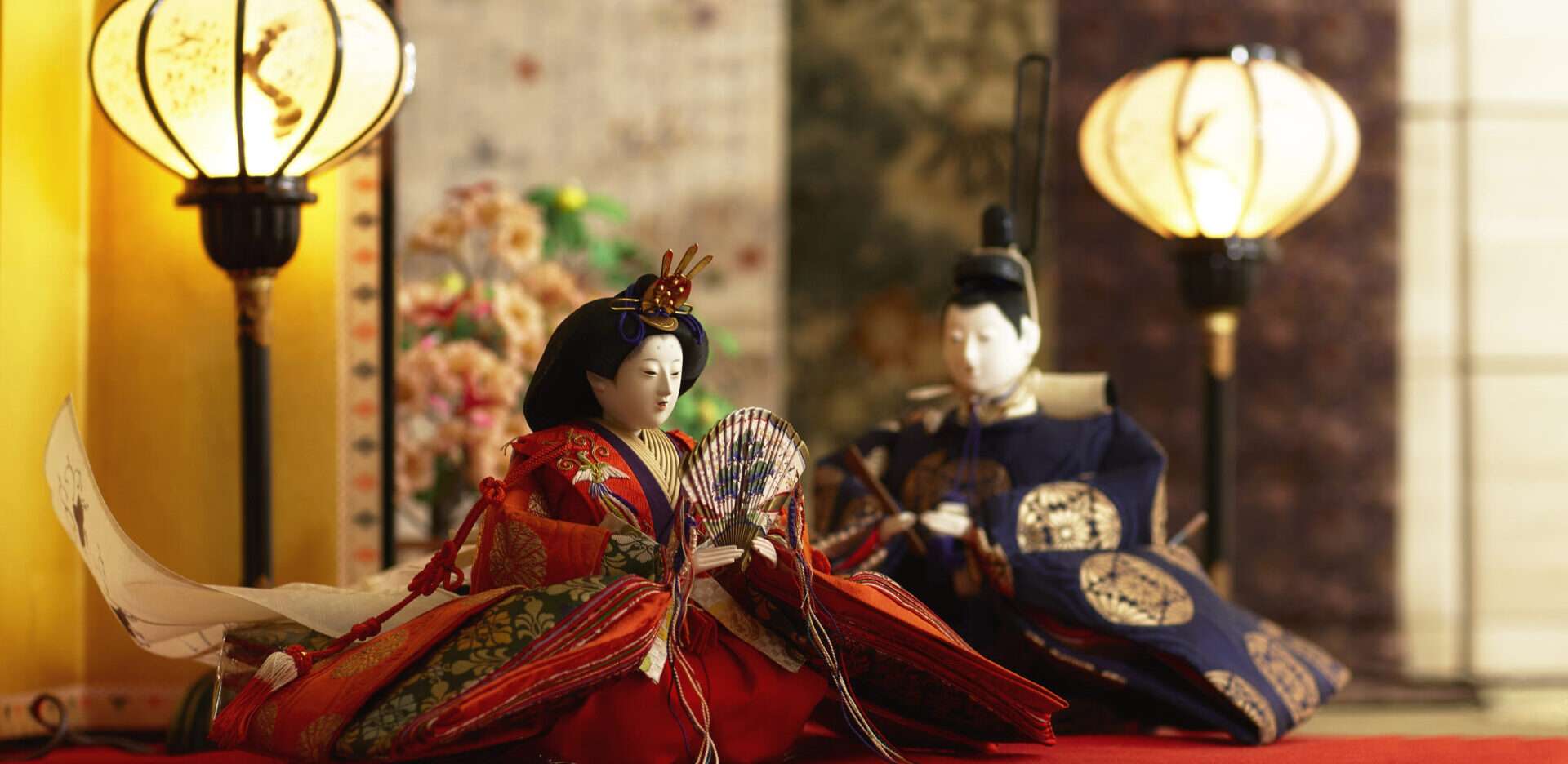Hello!
こんにちは、S1英会話です。
さあ、今日も元気に英語でコミュニケーション♪
今回のテーマは「ひな祭りについて話す」です。
★会話★
Rika and Mark are talking about the Doll’s Festival.
Rika: We have the Doll’s Festival on 3rd of March.
Mark: What is the Doll’s Festival?
Rika: It’s the traditional Japanese festival held to wish girls both health and growth. This family event originally began in the Edo era. And it’s also known as the Girl’s festival.
Mark: What do you usually do on the Doll’s Festival?
Rika: We set up dolls. And we have a party and eat chirashi-zushi and Hina-arare.
Mark: What are they?
Rika: Chirashi-zushi is unrolled sushi with pieces of raw fish, vegetables and thin strips of egg. Hina-arare is grilled bits of rice cake for the Doll’s Festifal.
Mark: Sounds delicious!
Rika: And there’s also a “Hina-matsuri” day song that everyone sings.
★ワンポイント★
the Doll’s Festival:「ひな祭り」the Girl’s festivalとも言う。
traditional:伝統的な
wish+目的語+ 補語:「~が(目的語)…であれば(補語)よいと望む」
originally:「もとは」「元来」「初めは」
era:「時代」
known as:「~として知られている」
set up:(像などを)立てる、据える
unrolled:巻かれていない、開かれた
raw:生の
thin:薄い
rice cake:餅
★訳文★
Rika and Mark are talking about the Doll’s Festival. (里香とマークがひな祭りについて話をしています。)
Rika: We have the Doll’s Festival on 3rd of March. (3月3日にひな祭りがあるの。)
Mark: What is the Doll’s Festival? (ひな祭りって何?)
Rika: It’s the traditional Japanese festival held to wish girls both health and growth. This family event originally began in the Edo era. And it’s also known as the Girl’s festival. (女の子の健康と成長を祈って行われる伝統的な日本のお祭りよ。この家族的行事は江戸時代に始まったの。 それから、「女の子のお祭り」としても知られているわ。)
Mark: What do you usually do on the Doll’s Festival? (ひな祭りにはいつも何をするの?)
Rika: We set up dolls. And we have a party and eat chirashi-zushi and Hina-arare. (お人形を飾るわ。それから、パーティーを開いて、ちらし寿司やひなあられを食べるの。)
Mark: What are they? (それって何?)
Rika: Chirashi-zushi is unrolled sushi with pieces of raw fish, vegetables and thin strips of egg. Hina-arare is grilled bits of rice cake for the Doll’s Festifal. (ちらし寿司は生魚の切り身や野菜、卵の薄切りの入った巻いていないすしのこと。ひなあられはひな祭りのための餅を砕いたものを焼いたものよ。)
Mark: Sounds delicious! (美味しそう!)
Rika: And there’s also a “Hina-matsuri” day song that everyone sings. (それから誰でもが歌う「ひな祭り」の日のための歌もあるの。)
英語で「ひな祭りの食べ物」
ひな祭りは、春を無事に迎えられたことを喜ぶお祭りです。これからもみんなが元気に過ごせることを祈り、菱餅やひなあられ、ちらし寿司などを食べます。
これらの食べ物に共通しているのは桃色(赤)、白、緑の三色です。子孫繁栄や長寿を願ってこの色になったということです。この日にふさわしい食べ物や色を楽しみたいですね。
ケイトとマリもこれらの食べ物について話をしています。
★会話★
Kate and Mari are talking about the Girls’ Festival.
Kate: Do you eat anything special on Girls’ Day?
Mari: Well, we eat Chirashizusi and drink sweet white sake.
Kate: What are they?
Mari: Chirashizusi is scattered sushi.
Kate: What ingredients are used for Chirashizusi?
Mari: Tuna, shrimp, salmon roe, snow peas, and thinly shredded egg omelet.
We put these ingredients on the rice.
Kate: Wow, that sounds nice!
How about sweet white sake?
Mari: It’s muddy sake.
If you feel up to it, will you come to my house tomorrow?
Kate: I’d love to.
Mari: Let’s enjoy the Girls’ Festival.
Kate: Why not?
★ワンポイント★
sweet white sake:「白酒」
scattered:「散らばった」
ingredient:「食材」
tuna:「まぐろ」
shrimp:「小エビ」
salmon roe:「いくら」
snow peas:「絹さや」
thinly shredded egg omelet:「錦糸卵」
put these A on B:「AをBに載せる」
muddy:「濁った」
feel up to it:「その気になる」「もし良かったら」
I’d love to.:誘われたとき、「是非そうしたいです。」
Why not?:「なぜしないの?」の他に、「ぜひそうしよう。」の意味もある。

★和訳★
Kate and Mari are talking about the Girls’ Festival.
(ケイトとマリがひな祭りについて話をしています。)
Kate: Do you eat anything special on Girls’ Day?
(ひな祭りの日には何か特別なものを食べるの?)
Mari: Well, we eat Chirashizusi and drink sweet white sake.
(ええと、ちらし寿司を食べて、白酒を飲むわ。)
Kate: What are they?(それって何?)
Mari: Chirashizusi is scattered sushi.
(ちらし寿司は、散らばった寿司のこと。)
Kate: What ingredients are used for Chirashizusi?
(ちらし寿司には食材に何が使われているの?)
Mari: Tuna, shrimp, salmon roe, snow peas, and thinly shredded egg omelet.
(まぐろ、小エビ、いくら、絹さや、それに錦糸卵。)
We put these ingredients on the rice.
(これらの食材をご飯の上に載せるの。)
Kate: Wow, that sounds nice!(わぁ、おいしそう!)
How about sweet white sake?(白酒は?)
Mari: It’s muddy sake.(それは、濁った酒のこと。)
If you feel up to it, will you come to my house tomorrow?
(もしよかったら、明日家に来ない?)
Kate: I’d love to.(是非、そうしたいわ。)
Mari: Let’s enjoy the Girls’ Festival.(ひな祭りを楽しみましょう。)
Kate: Why not?(是非、そうしましょう。)



